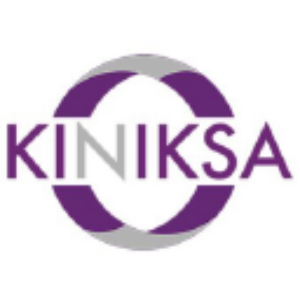Kiniksa Announces Preliminary Data from Phase 1 Trial of KPL-404
Rhea-AI Summary
Kiniksa Pharmaceuticals (KNSA) announced preliminary data from its Phase 1 clinical trial of KPL-404, a monoclonal antibody aimed at autoimmune diseases. The trial showed full receptor occupancy at 3 mg/kg IV through Day 29 and complete suppression of T-cell dependent antibody response. All dose escalations followed protocol with no adverse safety findings. Kiniksa is optimistic about KPL-404's potential for treating diseases such as rheumatoid arthritis and lupus, and anticipates full data release in early 2021.
Positive
- Preliminary Phase 1 data indicates full receptor occupancy at 3 mg/kg IV through Day 29.
- No dose-limiting safety findings reported, supporting continued development.
- Potential to address multiple autoimmune diseases, indicating a broad market opportunity.
- Final data and safety follow-up expected in 1H 2021, maintaining investor interest.
Negative
- Dependence on successful outcomes of ongoing and future clinical trials.
- Risks associated with the potential for adverse side effects of KPL-404.
News Market Reaction 1 Alert
On the day this news was published, KNSA gained 2.19%, reflecting a moderate positive market reaction.
Data tracked by StockTitan Argus on the day of publication.
- Receptor occupancy and TDAR suppression shown through Day 29 at 3 mg/kg intravenous –
- Data to-date support subsequent study in patients, including potential intravenous or subcutaneous monthly administration -
- Final data and safety follow-up from all cohorts expected in 1H 2021 -
HAMILTON, Bermuda, Nov. 30, 2020 (GLOBE NEWSWIRE) -- Kiniksa Pharmaceuticals, Ltd. (Nasdaq: KNSA) (“Kiniksa”), a biopharmaceutical company with a pipeline of assets designed to modulate immunological pathways across a spectrum of diseases, today announced preliminary data from the Phase 1 clinical trial of KPL-404 in healthy volunteers. KPL-404 is a monoclonal antibody inhibitor of the CD40-CD40 ligand (CD40L) interaction, a central control node of T-cell dependent, B-cell mediated humoral adaptive immunity.
“The preliminary data from the single-ascending-dose Phase 1 study of KPL-404 are encouraging,” said Sanj K. Patel, Chief Executive Officer and Chairman of the Board of Kiniksa. “We believe the data generated to-date suggest that KPL-404 has the potential to address a broad range of autoimmune diseases. We expect final data and safety follow-up from all cohorts of the Phase 1 study in the first half of 2021.”
The Phase 1 trial of KPL-404 is a randomized, double-blind, placebo-controlled, single-ascending-dose, first-in-human study that is divided into two parts: a single dose of KPL-404 0.03 mg/kg, 0.3 mg/kg, 1 mg/kg, 3 mg/kg or 10 mg/kg intravenously (IV) and a single dose of KPL-404 1 mg/kg or 5 mg/kg subcutaneously (SC). The primary objective is to assess the safety and tolerability of KPL-404. Secondary endpoints include pharmacokinetics, CD40 receptor occupancy (RO), the immune response to the novel test antigen keyhole limpet hemocyanin (KLH) in clinically relevant dose cohorts, and the anti-drug antibody response.
All dose escalations occurred as per protocol with no dose limiting safety findings. All 6 subjects dosed with KPL-404 3 mg/kg IV showed full receptor occupancy through Day 29, which corresponded with complete suppression of the T-cell Dependent Antibody Response (TDAR) to KLH through Day 29. Consistent dose relatedness was shown in the lower dose level cohorts, including 0.03 mg/kg, 0.3 mg/kg, 1 mg/kg IV and 1 mg/kg SC. Data collection for the higher dose level cohorts, 10 mg/kg IV and 5 mg/kg SC, is ongoing.
The data to-date support subsequent study in patients, including potential IV or SC monthly administration. Kiniksa expects final data and safety follow-up from all cohorts in the first half of 2021.
The CD40-CD40L interaction has been implicated in diseases such as rheumatoid arthritis, Sjogren’s syndrome, Graves’ disease, and systemic lupus erythematosus and in prevention of solid organ transplant graft rejection, where external proof-of-concept has been previously shown.
“KPL-404 is designed to inhibit CD40-CD40L interaction, a key T-cell co-stimulatory signal pathway critical for B-cell maturation and immunoglobulin class switching. Additionally, dysregulation of the CD40-CD40L pathway has been implicated in multiple autoimmune disease pathologies and has broad reaching implications beyond humoral immunity, with its impact on dendritic cells and macrophage activity,” said John F. Paolini, MD, PhD, Chief Medical Officer of Kiniksa. “The preliminary Phase 1 data replicate and underscore the preclinical data from this program, which showed favorable pharmacokinetic and pharmacodynamic profiles, including suppression of TDAR. The data to-date support continued clinical development, and we look forward to further analyzing the totality of the dataset.”
About KPL-404
KPL-404 is an investigational humanized monoclonal antibody that is designed to inhibit CD40-CD40L interaction, a key T-cell co-stimulatory signal critical for B-cell maturation and immunoglobulin class switching and Type 1 immune responses. Kiniksa believes disrupting the CD40-CD40L interaction is an attractive approach for multiple autoimmune disease pathologies such as rheumatoid arthritis, Sjogren’s syndrome, Graves’ disease, systemic lupus erythematosus and solid organ transplant. Kiniksa owns or controls the intellectual property related to KPL-404.
About Kiniksa
Kiniksa is a biopharmaceutical company focused on discovering, acquiring, developing and commercializing therapeutic medicines for patients suffering from debilitating diseases with significant unmet medical need. Kiniksa’s clinical-stage product candidates, rilonacept, mavrilimumab, vixarelimab and KPL-404, are based on strong biologic rationale or validated mechanisms, target underserved conditions and offer the potential for differentiation. These pipeline assets are designed to modulate immunological pathways across a spectrum of diseases. For more information, please visit www.kiniksa.com.
Forward-Looking Statements
This press release contains forward-looking statements within the meaning of the Private Securities Litigation Reform Act of 1995. In some cases, you can identify forward looking statements by terms such as “may,” “will,” “should,” “expect,” “plan,” “anticipate,” “could,” “intend,” “target,” “project,” “contemplate,” “believe,” “estimate,” “predict,” “potential” or “continue” or the negative of these terms or other similar expressions, although not all forwardlooking statements contain these identifying words. All statements contained in this press release that do not relate to matters of historical fact should be considered forward-looking statements, including without limitation, statements regarding: our belief that KPL-404 has the potential to address a broad range of autoimmune diseases; our belief that the data to-date from our Phase 1 clinical trial of KPL-404 in healthy volunteers support continued clinical development; expected timing of final data and safety follow-up from all cohorts of the Phase 1 trial in the first half of 2021; our beliefs about the mechanisms of action of our product candidates and potential impact of their approach, including our belief that KPL-404’s disruption of the CD40-CD40L interaction is an attractive approach for multiple autoimmune disease pathologies; and our belief that all of our product candidates offer the potential for differentiation.
These forward-looking statements are based on management’s current expectations. These statements are neither promises nor guarantees, but involve known and unknown risks, uncertainties and other important factors that may cause our actual results, performance or achievements to be materially different from any future results, performance or achievements expressed or implied by the forward-looking statements, including without limitation, the following: delays or difficulty in completing our Phase 1 clinical trial of KPL-404 in healthy volunteers; potential for changes between final data and any preliminary, interim, top-line or other data from the Phase 1 clinical trial; our potential inability to replicate in later clinical trials the positive final data from our earlier clinical trials or studies; impact of additional data from us or other companies, including the potential for our data to produce negative, inconclusive or commercially uncompetitive results; potential undesirable side effects caused by KPL-404; our reliance on third parties to manufacture our product candidates; drug substance and/or drug product shortages; our reliance on third parties to conduct research, clinical trials, and/or certain regulatory activities for our product candidates, including for KPL-404; potential complications in coordinating requirements, regulations and guidelines of regulatory authorities across jurisdictions for our clinical trials, including for the Phase 1 clinical trial; the potential impact of the COVID-19 pandemic and measures taken in response to the pandemic on our business and operations as well as the business and operations of our manufacturers, CROs upon whom we rely to conduct our clinical trials, and other third parties with whom we conduct business or otherwise engage, including the FDA and other regulatory authorities; changes in our operating plan and funding requirements; and existing or new competition.
These and other important factors discussed under the caption “Risk Factors” in our Quarterly Report on Form 10-Q filed with the Securities and Exchange Commission (“SEC”) on November 5, 2020 and our other reports subsequently filed with the SEC could cause actual results to differ materially from those indicated by the forward-looking statements made in this press release. Any such forward-looking statements represent management’s estimates as of the date of this press release. While we may elect to update such forward-looking statements at some point in the future, we disclaim any obligation to do so, even if subsequent events cause our views to change. These forward-looking statements should not be relied upon as representing our views as of any date subsequent to the date of this press release.
Every Second Counts!™
Kiniksa Investor and Media Contact
Mark Ragosa
(781) 430-8289
mragosa@kiniksa.com







